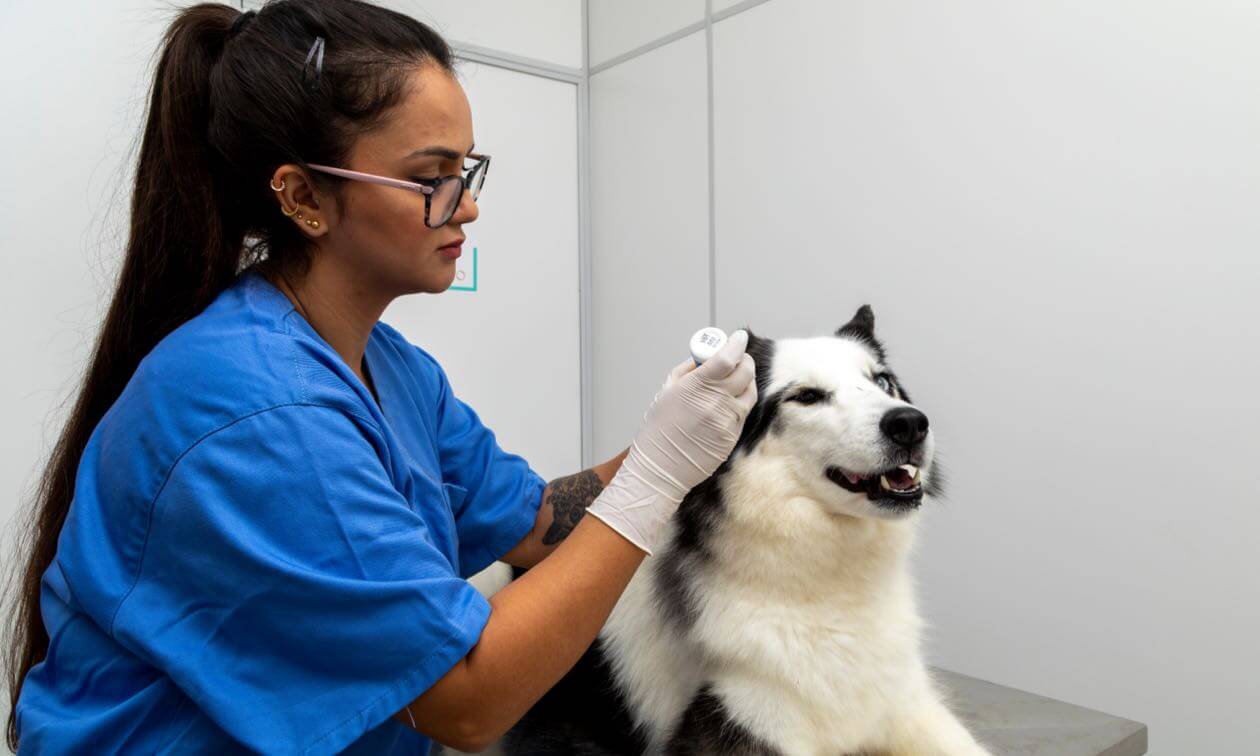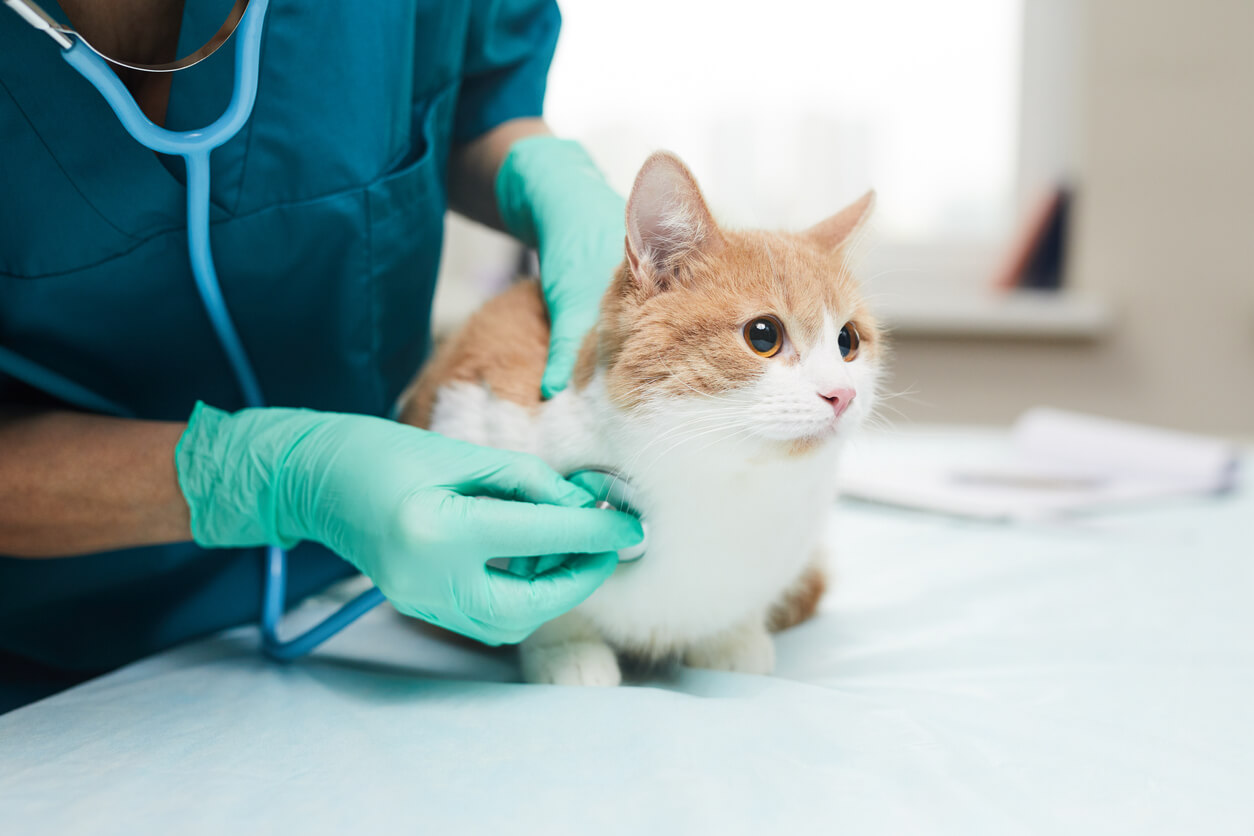Protect Your Pet's Future with Timely Pet Vaccinations from an Expert Vet
Protect Your Pet's Future with Timely Pet Vaccinations from an Expert Vet
Blog Article
Inoculation Guidelines From Your Trusted Veterinarian
Vaccination standards offered by your trusted veterinarian play an important function in guarding your pet dog's wellness and wellness. Additionally, dealing with usual mistaken beliefs surrounding vaccines can even more improve pet dog owners' confidence in these precautionary procedures.

Significance of Vaccinations
Vaccinations play a crucial role in protecting pet dogs versus a variety of preventable conditions. By boosting the body immune system to recognize and fight details pathogens, vaccines dramatically lower the occurrence of contagious illness that can affect a pet's health and wellness and longevity. Not only do inoculations shield individual animals, but they also add to herd resistance, thereby lowering the overall frequency of illness in the pet dog populace.
Prompt inoculations aid to reduce the spread of diseases such as rabies, parvovirus, and distemper, which can have severe effects for both humans and pet dogs. Furthermore, inoculations are typically a requirement for boarding centers, grooming services, and dog parks, making them necessary for those that want to socialize their pet dogs.

Core Vaccinations for Family Pets
While the specific inoculation requirements of pet dogs can differ based on private variables, core vaccinations are generally advised to protect versus one of the most typical and severe conditions (Pet Vaccinations). Core vaccinations are those considered necessary for all pet dogs, no matter of their way of living or geographical place, as they safeguard against possibly fatal and highly infectious health problems
For dogs, the core injections include those for canine distemper, parvovirus, adenovirus (liver disease), and rabies. Adenovirus can result in liver condition, while rabies is a zoonotic disease that poses a danger to both human beings and family pets.
In felines, core vaccinations encompass feline panleukopenia, feline calicivirus, feline herpesvirus (rhinotracheitis), and rabies. Feline panleukopenia is an extremely contagious viral illness that influences the immune system and intestines. Calicivirus and herpesvirus are significant contributors to top breathing infections in pet cats, while rabies remains a vital concern for public health and wellness.
Consult with your veterinarian to ensure your pets get their core inoculations on time.
Non-Core Vaccines Explained
Non-core vaccines are customized to address certain threats associated with an animal's setting, way of life, and exposure to particular diseases. Unlike core injections, which are generally suggested for all family pets, non-core vaccinations are thought about based upon private scenarios. These injections are especially important for family pets that may encounter unique pathogens due to their geographical location, travel behaviors, or activities.
Examples of non-core vaccinations include those for Bordetella bronchiseptica, which is connected to kennel cough, and Lyme illness, triggered by ticks. Family pets that often interact with other animals, such as those in boarding facilities, dog parks, or brushing settings, might take advantage of Bordetella vaccination. If you live in an area where Lyme condition is widespread, immunizing against this illness can be a prudent choice for outdoor-loving canines.
Other non-core vaccinations might consist of those for leptospirosis, canine flu, and feline leukemia, depending on the details risk factors present. It is vital to have an extensive discussion with your vet concerning your pet dog's lifestyle and the potential need for these injections, ensuring a customized inoculation strategy that best shields your hairy good friend.
Inoculation Arrange Summary

As animals develop, it is crucial to stick to the recommended booster vaccinations. Pet Health Checkup. For adult animals, core vaccinations are usually given each to three years, depending upon the certain vaccine and neighborhood laws. Non-core injections might be advised based on lifestyle variables and regional condition frequency, necessitating a tailored strategy
Regular veterinary check-ups are crucial for updating inoculation routines. Your veterinarian can give guidance on one of the most appropriate booster shots for your animal, considering age, health status, and environmental dangers. By staying positive and educated, family pet owners can ensure their fuzzy friends get reliable and timely inoculations, thereby safeguarding their wellness and health throughout their lives.
Typical Myths Concerning Vaccines
False impressions regarding family pet vaccinations can lead this content to confusion and reluctance amongst pet proprietors regarding the immunization process. One common myth is that vaccines are unnecessary for indoor pets. While it holds true that interior family pets face lower dangers, they are not entirely unsusceptible to diseases, as virus can be introduced with various ways, consisting of human apparel and other family pets.
One more mistaken belief is that vaccinations can cause the illness they aim to prevent. In fact, many vaccinations have suspended or undermined pathogens, which can not create condition in healthy pets. Some pet dog owners additionally believe that their pets must not be immunized if they are already healthy and balanced; however, inoculations are an aggressive action that helps protect against the onset of ailment.
Additionally, many pet dog proprietors are afraid that vaccines will lead to long-lasting health and wellness complications. While side impacts can happen, they are typically mild and momentary. The advantages of inoculation-- safeguarding animals from possibly serious conditions-- much surpass the dangers. Recognizing these common misconceptions is vital for liable pet dog ownership and guaranteeing the health and safety of your hairy friends. Always consult your veterinarian for accurate information tailored to your pet dog's specific needs.
Verdict
In recap, adherence to inoculation standards is important for guaranteeing the health and longevity of family pets. Dispelling typical myths surrounding vaccinations further reinforces the importance of informed decision-making in pet treatment.
Not only do inoculations safeguard private pets, but they also contribute to herd resistance, consequently lowering the overall occurrence of diseases in the family pet populace.
Misunderstandings about pet inoculations can address lead to complication and unwillingness among pet dog proprietors pertaining to the booster shot process. While it's true that interior pets encounter lower threats, they are not completely immune to illness, as pathogens can be presented with numerous ways, including human apparel and other animals.
Some pet More hints dog owners likewise think that their animals must not be immunized if they are already healthy; nevertheless, inoculations are a positive action that helps stop the beginning of illness.
The advantages of vaccination-- safeguarding animals from potentially deadly diseases-- far exceed the risks.
Report this page